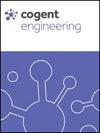Factors influencing urban consumers on selecting electricity saving home appliances for managing energy consumption in Indonesia
IF 2.5
Q2 ENGINEERING, MULTIDISCIPLINARY
引用次数: 0
Abstract
Abstract This study aims to analyze vital indicators for urban consumer’s behavior regarding electricity saving appliances (ESA) to reduce energy consumption at home in Indonesia. The studied appliances are limited to two, refrigerator and air conditioner, as these appliances are the most dominant in consuming electricity energy. There are two equation models proposed for each appliance by using consumers’ perceptions (general and specific perceptions) and external (social environment, weather, and mass media) group variables, usage and habitual behaviors. Using stepwise regression and statistical approaches for 232 surveyed household consumers in Makassar city, the adjusted R2 value for four composed models is between 52% and 59%. Study findings reveal that specific perception significantly influences the usage of both appliances including the habit of consumers for energy saving. Among the examined external factors, the variable of mass media has significance in almost all models. Implications for policymakers suggest applying a priority approach in promoting energy saving to consumers with low specific perception based on the aspect of installed electric power capacity at home, and giving more information via mass media about attributes of ESA including introducing intervention strategies is essential to support sustainable electricity consumption from the consumer’s side.影响印度尼西亚城市消费者选择节电家电以管理能源消耗的因素
摘要 本研究旨在分析印尼城市消费者使用节电电器(ESA)以减少家庭能源消耗行为的重要指标。所研究的电器仅限于冰箱和空调这两种,因为这两种电器是最主要的耗电电器。利用消费者的认知(一般认知和特殊认知)和外部(社会环境、天气和大众媒体)群体变量、使用情况和习惯行为,为每种电器提出了两个方程模型。在对望加锡市 232 个受访家庭消费者进行逐步回归和统计后,四个组成模型的调整 R2 值介于 52% 和 59% 之间。研究结果表明,特定的认知对两种电器的使用都有重大影响,包括消费者的节能习惯。在所研究的外部因素中,大众传媒变量在几乎所有模型中都具有显著性。对政策制定者的启示是,根据家庭电力装机容量,优先向特定感知较低的消费者推广节能,并通过大众传媒提供更多有关欧空局属性的信息,包括引入干预策略,这对于从消费者方面支持可持续用电至关重要。
本文章由计算机程序翻译,如有差异,请以英文原文为准。
求助全文
约1分钟内获得全文
求助全文
来源期刊

Cogent Engineering
ENGINEERING, MULTIDISCIPLINARY-
CiteScore
4.00
自引率
5.30%
发文量
213
审稿时长
13 weeks
期刊介绍:
One of the largest, multidisciplinary open access engineering journals of peer-reviewed research, Cogent Engineering, part of the Taylor & Francis Group, covers all areas of engineering and technology, from chemical engineering to computer science, and mechanical to materials engineering. Cogent Engineering encourages interdisciplinary research and also accepts negative results, software article, replication studies and reviews.
 求助内容:
求助内容: 应助结果提醒方式:
应助结果提醒方式:


